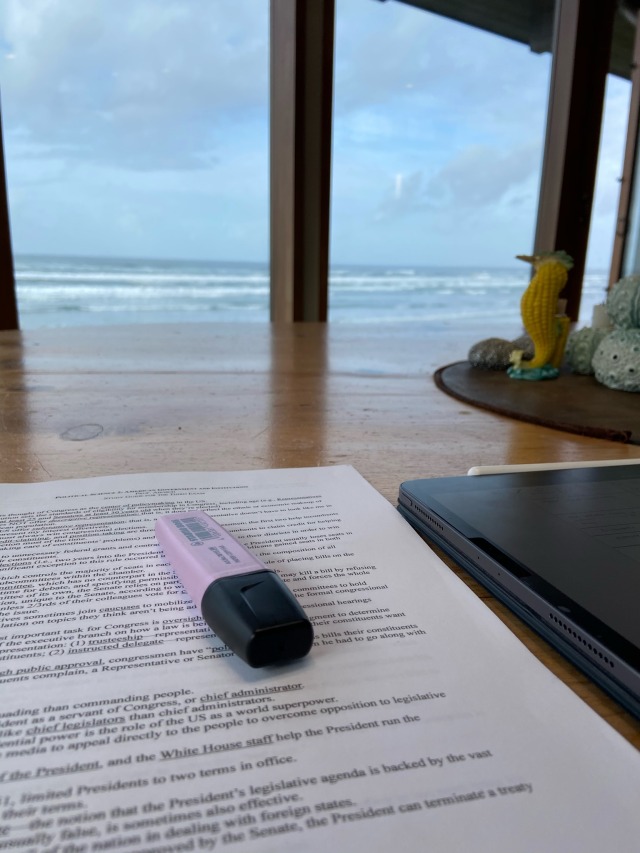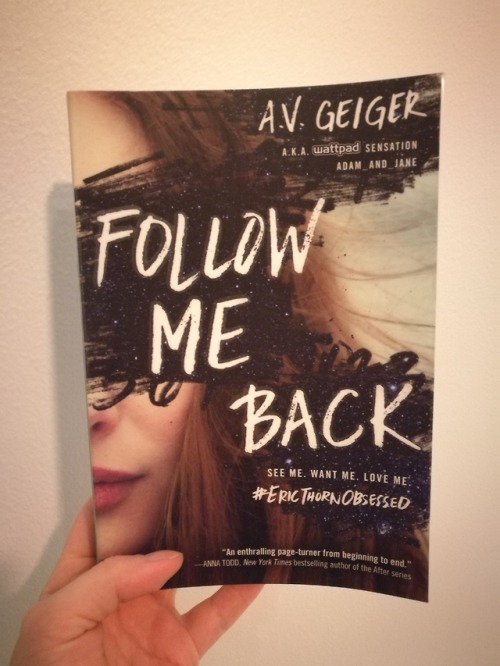#motivation


I painted my living room wall pink and bought blue sheets.


studying for finals


I’m redecorating my room to fit the dark academia style and i’m so excited


- digital Intro to Statistics notes i took today <3
- how is everyone doing with online classes?
hey guys!!!
so this entire past month has been extremely, extremely stressful for me because i had so many exams and i only realised how hideously unprepared i was for them on the day before the exam, which was really really awful. so in the middle of september i created a studyblr to keep myself motivated + get some helpful tips from the studyblr community on how to go abt studying for tests. the results proved to be super helpful and ive resolved to keep running this blog for as long as i can, because it really helps me stay motivated and i’ve already learned so many things from the community, despite the fact that i’ve only been here for around a month.
but anyways, i decided to create this masterpost in order to help others stay motivated + keep studying not only well but also properly i.e. not necessarily studying for exams but life in general, if that makes sense.
~ staying motivated + focused
- coffitivity
- download the forest app
- chrome site blocker
- self control app
- try the pomodoro technique
- pomodoro printable
- getting back on track
- guide to staying motivated
- an excellent post full of great advice
- lots of great advice from an a levels student
- masterpost full of motivational quotes
- how to avoid procrastinating
- 100 reasons to study
- how to study like a harvard student
- motivational movies/shows
- types of learners [what method of learning works for u]
- motivation for harvard students [and basically all other students]
~ staying organized
- 5 habits of organized students
- set up a bullet journal [1][2][3]
- keeping school notes organized
- use dropbox to store important files
- masterpost on organizing schoolwork
- a super awesome n helpful video tutorial
- how to organize ur desk
- how to study space
- study space guide
- study space tips and guidance
- guide to study guides
- atracker - track ur time and stop procrastinating [mobile app]
- minimalist organization
- masterpost on time management
- time management tips
- how to be productive
- how to use a planner
- effective planning system
~ note-taking
- notability [ios app - best note-taking app imo]
- note taking overview
- cornell method
- summary foldables
- fastest way to take notes
- simple, creative note-taking
- how to make ur notes look pretty[infographic]
- how to make ur notes look pretty [video]
- taking notes from textbooks
- taking notes during lectures
- for: maths [1]
- for: history
- how to make mind maps
- great supplies and stationery u could use to keep notes pretty and organized
- what is visual note-taking?
- how to: visual note-taking
- what are sketchnotes?
- how to: sketchnotes
- masterpost on note taking methods
~ research techniques
- how to google effectively
- use google scholar as an alternative to google
- one of the best websites for research [esp. while doing science projects at the last minute…i would know]
- alternative to wikipedia
- find books in nearby libraries
- openlibrary [ebook library]
- online journal search engine [find scientific publications]
~ essay writing
- guide to writing a great essay
- HUGE general writing masterpost [including essays]
- a huuuge essay writing masterpost
- how to write a university-level essay
- how to connect ur points and ideas: transition words
- editing checklist
- advice: college application essays
- improve ur vocabulary
- check the readibility of ur essay
- website which grades ur papers and essays
~ free online resources & courses
- openculture
- mit opencourseware
- the open university
- coursera
- khanacademy
- codecademy [how to code]
- memrise
- study geography
- online calculator
- maths masterpost
- amazing maths + general knowledge site [u must check this out!!!]
- maths cheat sheets
- mathway [solvesany maths equation]
- website that balances chemical reactions for u
- study guides for many subjects
- windows apps [not all study-related, but useful anyways]
- more phone apps for productivity
- list of great apps every student must have
- crash course: psychology
- crash course: world history+world history 2
- crash course: anatomy and physiology
- crash course: astronomy
- crash course: big history
- crash course: chemistry
- crash course: biology
- crash course: literature
- crash course: us history
- crash course: economics
- crash course: us government and politics
- crash course: intellectual property
- crash course: ecology
- free ebooks[1][2][3][4][5][6][7][8]
- masterpost of free ebooks
~ languages
- memrise
- duolingo [20+ languages - very fun and interactive]
- lang-8
- thesaurus
- reverse dictionary [1]
- learning vocabulary
- how to learn any language
- HUUUUUGE language masterpost [so many languages and resources]
- literature masterpost [for english - reading something other than textbooks is important yo]
- english literature for college students[masterpost]
- english literature: sparknotes
- english literature: cliffnotes
- english literature: shmoop
- english literature: crash course
- english literature: novel guide
- no fear shakespeare
- self-studying languages
- spanish: advice
- spanish: getting started
- spanish: vocab
- spanish: grammar and spelling checker
- french: advice
- french: getting started
- french: vocab
- french: grammar and spelling checker
- french: masterpost of amazing resources
- japanese: getting started
- korean: masterpost of amazing resources
~ survival tips + advice
- how to study for ANY subject
- 10 mistakes when studying
- 101 study tips
- studying for a test
- general study tips
- how to study
- how to survive high school
- how to survive college
- college survival masterpost
- things to avoid doing
- college: applying for scholarships
- giving presentations
- improve ur handwriting
- resume cheat sheet
- productive + relaxing afterschool routine
- productive study breaks
- emergency life hack: send last minute assignments after the last minute without getting into too much trouble
~ mental/physical health
- the thoughts room
- the dawn room
- the quiet place
- it will be okay
- international suicide hotlines
- iphone feature [to use in case of emergency]
- emergency chat [mobile app]
- sleeping tips[1]
- dealing w insomnia
- bedtime calculator[1]
- stress management
- how to reduce stress
- staying calm during exams
- grief masterpost
- list of happy things
- motivation for when ur not feeling so good
~ stress reliefs
- clear ur mind
- healthy study snacks
- mug cake masterpost
- smoothie masterpost
- salads masterpost
- more study snacks to boost brain activity
- creepy sites
- taylor swift tumblr replies
- draw cool neon things
- musical sea creature
- watch a cool dream
- watch any tv show/movie
- just shower thoughts
- poptropica [so underrated, my favourite game site, it’s for kids but it’s so entertaining and so much fun]
- plant personality quiz
- cookie clicker
- make cool colourful silk
- make virtual sand art
- fake tweet generator
- fake text generator
- listen to calming sounds
- huge masterpost full of fun stuff
~ music
- ghibli music
- coffee shop blues
- classical music masterpost
- masterpost of studying music
- classical vocal music masterpost
- cute nostalgic piano music playlist
- my favourite instrumental playlist of all time
- my studying/instrumental playlist collection on 8tracks
i think that includes most of the best resources i could find!!! feel free to message me in case 1) any of the links are broken, 2) u want me to add on to something, 3) u have a suggestion for a masterpost [i would love that so go ahead and ask if u do] or if u just wanna talk! also, feel free to reblog and add ur own comments/resources. hope this helped!!
-mli
Post link
To Do or Not to Do: Cracking the Code of Motivation
Our motivation to put effort for achieving a goal is controlled by a reward system wired in the brain. However, many neuropathological conditions impair the reward system, diminishing the will to work. Recently, scientists in Japan experimentally manipulated the reward system network of monkeys and studied their behavior. They deciphered a few critical missing pieces of the reward system puzzle that might help in increasing motivation.
Why do we do things? What persuades us to put an effort to achieve goals, however mundane? What, for instance, drives us to search for food? Neurologically, the answer is hidden in the reward system of the brain—an evolutionary mechanism that controls our willingness to work or to take a risk as the cost of achieving our goals and enjoying the perceived rewards. In people suffering from depression, schizophrenia, or Parkinson’s disease, often the reward system of the brain is impaired, leading them to a state of diminished motivation for work or chronic fatigue.
To find a way to overcome the debilitating behavioral blocks, neuroscientists are investigating the “anatomy” of the reward system and determining how it evaluates the cost-benefit trade-off while deciding on whether to pursue a task. Recently, Dr. Yukiko Hori of National Institutes for Quantum and Radiological Science and Technology, Japan, along with her colleagues have conducted a study that has answered some of the most critical questions on benefit- and cost-based motivation of reward systems. The findings of their study have been published in PLoS Biology.
Discussing what prompted them to undertake the study, Dr. Hori explains “Mental responses such as ‘feeling more costly and being too lazy to act,’ are often a problem in patients with mental disorders such as depression, and the solution lies in the better understanding of what causes such responses. We wanted to look deeper into the mechanism of motivational disturbances in the brain.”
To do so, Dr. Hori and her team focused on dopamine (DA), the “neurotransmitter” or the signaling molecule that plays the central role in inducing motivation and regulation of behavior based on cost-benefit analysis. The effect of DA in the brain transmits via DA receptors, or molecular anchors that bind the DA molecules and propagate the signals through the neuronal network of the brain. However, as these receptors have distinct roles in DA signal transduction, it was imperative to assess their relative impacts on DA signaling. Therefore, using macaque monkeys as models, the researchers aimed to decipher the roles of two classes of DA receptors—the D1-like receptor (D1R) and the D2-like receptor (D2R)—in developing benefit- and cost-based motivation.
In their study, the researchers first trained the animals to perform “reward size” tasks and “work/delay tasks.” These tasks allowed them to measure how perceived reward size and required effort influenced the task-performing behavior. Dr. Takafumi Minamimoto, the corresponding author of the study explains, “We systematically manipulated the D1R and D2R of these monkeys by injecting them with specific receptor-binding molecules that dampened their biological responses to DA signaling. By positron emission tomography-based imaging of the brains of the animals, the extent of bindings or blockades of the receptors was measured.” Then, under experimental conditions, they offered the monkeys the chance to perform tasks to achieve rewards and noted whether the monkeys accepted or refused to perform the tasks and how quickly they responded to the cues related to the tasks.
Analysis of these data unearthed some intriguing insights into the neurobiological mechanism of the decision-making process. The researchers observed that decision-making based on perceived benefit and cost required the involvement of both D1R and D2R, in both incentivizing the motivation (the process in which the size of the rewards inspired the monkeys to perform the tasks) and in increasing delay discounting (the tendency to prefer immediate, smaller rewards over larger, but delayed rewards). It also became clear that DA transmission via D1R and D2R regulates the cost-based motivational process by distinct neurobiological processes for benefits or “reward availability” and costs or “energy expenditure associated with the task.” However, workload discounting—the process of discounting the value of the rewards based on the proportion of the effort needed—was exclusively related to D2R manipulation.
Prof. Hori emphasizes, “The complementary roles of two dopamine receptor subtypes that our study revealed, in the computation of the cost-benefit trade-off to guide action will help us decipher the pathophysiology of psychiatric disorders.” Their research brings the hope of a future when by manipulating the inbuilt reward system and enhancing the motivation levels, lives of many can be improved.
Motivation depends on how the brain processes fatigue
Fatigue – the feeling of exhaustion from doing effortful tasks – is something we all experience daily. It makes us lose motivation and want to take a break. Although scientists understand the mechanisms the brain uses to decide whether a given task is worth the effort, the influence of fatigue on this process is not yet well understood.
The research team conducted a study to investigate the impact of fatigue on a person’s decision to exert effort. They found that people were less likely to work and exert effort – even for a reward – if they were fatigued. The results are published in Nature Communications.
Intriguingly, the researchers found that there were two different types of fatigue that were detected in distinct parts of the brain. In the first, fatigue is experienced as a short-term feeling, which can be overcome after a short rest. Over time, however, a second, longer term feeling builds up, stops people from wanting to work, and doesn’t go away with short rests.
“We found that people’s willingness to exert effort fluctuated moment by moment, but gradually declined as they repeated a task over time,” says Tanja Müller, first author of the study, based at the University of Oxford. “Such changes in the motivation to work seem to be related to fatigue – and sometimes make us decide not to persist.”
The team tested 36 young, healthy people on a computer-based task, where they were asked to exert physical effort to obtain differing amounts of monetary rewards. The participants completed more than 200 trials and in each, they were asked if they would prefer to ‘work’ – which involved squeezing a grip force device – and gain the higher rewards offered, or to rest and only earn a small reward.
The team built a mathematical model to predict how much fatigue a person would be feeling at any point in the experiment, and how much that fatigue was influencing their decisions of whether to work or rest.
While performing the task, the participants also underwent an MRI scan, which enabled the researchers to look for activity in the brain that matched the predictions of the model.
They found areas of the brain’s frontal cortex had activity that fluctuated in line with the predictions, while an area called the ventral striatum signalled how much fatigue was influencing people’s motivation to keep working.
“This work provides new ways of studying and understanding fatigue, its effects on the brain, and on why it can change some people’s motivation more than others” says Dr Matthew Apps, senior author of the study, based at the University of Birmingham’s Centre for Human Brain Health. “This helps begin to get to grips with something that affects many patients lives, as well as people while at work, school, and even elite athletes.

Source:blessthemessy

Source:abigail.linn.art
Frail:
Adj: (of a person)weak and delicate Easily damaged, fragile.
.
.
.
Looking at the prompt for @inktober day 8, frail, I’m reminded how I used to equate frail to introverted. It’s often seen as a negative to be less talkative or “shy”. Over the years as a therapist, I’ve learned being introverted does not equate to being frail. Introverted is (for myself) more in line with being empathetic and an attentive listener while still being able to advocate for myself and clients.
Combined with the following asks:
- In one of your 10 Qs you talked about adversity, I’ve never read you mention that any other time (happening in your life). If you don’t mind telling us what was the biggest thing you’ve had to overcome in your life? (or the general idea of it)
- Have you ever experienced failure/rejection? (e.g. Love, career, etc) If so, how did you deal with it? Would really appreciate any tips or insights you have on how to be tougher in discouraging situations. Thank you!
- Did you ever face any real rejections(like from a job, school, anything)? If not, how do you imagine you’d deal with it so you could move on?
- How do you deal with failure?
- How do you manage to handle failuresandlosses? What are the things you do to get back up?
Have you ever experienced failure and rejection?
There isn’t enough server space on Tumblr to catalog all my failures, challenges, rejections, and losses. Of course I’ve failed, I’ve failed my way to success, and I’m proud of each and every single one because they’re part of my journey and my development to becoming a badass motherfucker.
Some of my most spectacular and epic failures, rejections, challenges, and losses in life:
- I grew up in poverty. When I was 5, I witnessed my mother sell her wedding ring to a pawn shop so she could buy bags of rice for our family. 24 years later, I bought her a home.
- Growing up in poverty also meant I grew up in a rough lower income neighborhood with frequent robberies and stabbings. I got jumped and bullied a lot at school so I quickly learned how to fight. I was never picked on again.
- I almost failed middle school then I almost failed high school. I was almost held back in 10th grade. I failed two must-pass classes and had to attend summer school to make them up. I was an academic underachiever in high school while dealing with a lot of personal issues. A decade later I was accepted to every UC university plus USC, graduated UCLA summa cum laude, and graduated USC magna cum laude.
- I was kicked out and forced to transfer from my first high school due to severe behavioral problems. My teachers told me I wouldn’t amount to anything because I had “a bad attitude, was combative, and lazy.”
- I was the problem child in my family. A lot of my extended family didn’t want their kids around me back then (I have 18 aunts and uncles and 32 cousins) because they thought I was a bad influence and I was the pariah at family gatherings. Now, they all reach out and flood me with requests to mentor their kids on academic, career, and life matters– I’m suddenly a role model.
- It was a dream of mine to play basketball in college but in 11th grade they discovered a developmental deformation in my bones and that dream was over. I had major surgery to have my hip sawed in three places, my pelvis shifted, and nailed back into place. I went through an excruciating 6 months of physical therapy where I had to piss into a catheter bag, I was temporarily wheelchair bound, I had to re-learn how to walk using a walker, and my severed thigh nerves had to be stimulated with electricity. I have an 11-inch thick rope scar on my right hip.
- I’ve had 6 (yes, six – seis – sechs) psychologists to help me with my anger management and mental health issues. I wrestled with depression all throughout my teenage years that culminated in a very dramatic and very unnecessary attempt on my life when I was 19.
- I was financially disowned by my parents and had to drop out of college for two years. I attended community college and worked 3 jobs, one of which was as ajanitor. I’ve scrubbed shit off toilets and barf off floors to make ends meet, I’ve had a knife pulled on me as a cashier at Target, and my body has been 90% salt and 10% water from all the ramen packets I ate because that was the only food I could afford.
- I had to forfeit my acceptance to my dream college – one that I worked tirelessly to get for 3 years – because my family couldn’t afford it.
- In 2011, I had to have more surgery. My parents and I weren’t on the same page at the time so my fucking amazing friends (Anthony, I know you’re reading this <3) accompanied me during the recovery process. They helped change my drains, clean my bandages, feed me, carry me to the bathroom, drive me to and from the hospital (an 800 mile round trip). I returned to school immediately after still wrapped in bandages and walked across campus to my classes with the help of a cane for 2-3 weeks. Never missed a single class that quarter, finished with a 4.0.
- My parents couldn’t afford MCAT and GRE prep courses (~$3000) when I was applying to medical school and grad school so I started a small business in my dorm room buying and selling video game and anime soundtracks to raise the cash. I ended up giving the money I made to my family to save their home and instead bought a bunch of books and just self-studied instead. I scored in the 99 percentile for both tests anyway and I was accepted into the majority of the colleges I applied to.
- I was rejected from all the consulting firms – all – that I applied to after undergrad. All. Not even one callback. At the time they wouldn’t even extend the courtesy of a rejection email. Two years later, the same consulting firms that rejected me all extended offers and competed against each other to win me over.
And those are just a fewexamples, that’s the abridgedversion.
How did you deal with failure, rejection, and losses?
Success is never final, failure is never fatal. It’s courage that counts.
John Wooden
I fought back. I don’t know what to tell you except to fight back. You tried, you failed, you fell, you’re rejected, you lost, and it sucks, you’re hurt, you may be crying, and you’re feeling awfully sorry for yourself– okay I get it, but now what? Is that the end of it? It’s not. You get back up.
More thoughts:
- It’s not an ENTJ thing. That’s the first thing I want you to understand since most of you know me through the MBTI community. There’s nothing sparkly, special, or inherently superior about ENTJs that gives them more grit, makes them tougher, and makes them more resilient than the other types. There’s nothing about your MBTI type, your cognitive function order or stack, your zodiac, your enneagram, your Chinese zodiac, your birthstone, your birth month, whether or not the fairy spirits accepted your sacrifice of lavender and skittles, or whether or not Saturn was humping Pluto when you were conceived that prevents you from getting back up after you fall. That is a choice you make that you must take ownership and responsibility for. So make the right choice.
- You can do everything perfectly and still fail. Failure is inevitable so you must have resilience, minimize your chances for failure, and maximize your chances for success. A valedictorian straight A student in high school with 50 extracurricular activities and glowing letters of recc can still get rejected from Harvard University so what chance does a B student with 1 extracurricular activity and no letters of recc have? An upper middle class white collar worker who responsibly manages his money can lose all his savings and his home during the recession so what chance does a similar person with shit money management skills have? Don’t sabotage yourself: prepare, be disciplined, be timely, be persistent. Ensure that everything that’s within your control is done to the best of your ability.
- Don’t fail for free. When you fail– make sure you get something out of it like a lesson, more wisdom, more perspective, and more confidence. If you were an idiot pre-failure then you better be less of an idiot post-failure. Learn from your mistakes and don’t suffer without getting something back in return.
- The time you spend whining is precious time you waste not winning. If you’re trying to win a marathon and you stub your toe on the road, you don’t stop running, sit down, and complain about it while all the other runners pass you by. Feel free to bitch about it and curse to your heart’s content but keep running. Don’t stop. Even when I fuck up (and I do) and I need to nurse my wounds, I’m wrapping that bandage while still charging towards my goals at full speed. My foot never leaves the pedal. Don’t compound the problem and miss new opportunities because you’re dwelling on past ones.
- Don’t take it personally, sometimes it’s not under your control. When I graduated grad school the same consulting firms that flat out rejected me two years prior were banging on my door with lucrative offers. I asked the recruiter why I didn’t get an offer back then and they said it was due to the recession– a simple timing issue. There were 400 applications and 7 spots, my application was number 385, and they’d already closed the screening process. I had a solid application, solid GPA, great internships, but there were no open positions at the time. That’s just how it goes sometimes.
- Be persistent, sometimes it IS under your control. The same recruiter who told me the recession triggered a hiring freeze at most consulting firms also told me he was extremely glad I applied again two years later because the economy picked up and talent was high in demand. In addition to a bunch of offers, I ended up with a higher salary than the consultants hired during the recession. If I stayed pissed at them I wouldn’t have applied again two years later and ended up in a career I love.
- No one is coming to save you, it’s on you to make it happen. You know that scene in Harry Potter: Prisoner of Azkaban where Harry and Hermione are in the Forbidden Forest waiting for Harry’s dad to save them from the dementors? And when no one comes and they’re inches from death Harry finally realizes the person he saw rescued them was actually himself so he steps in and saves both their lives? Yeah, it’s like that. Don’t wait around for someone to rescue you because they won’t always be there to bail you out. Be able to get back up and step back in the ring on your own. You are your own champion.

For all men saying that women do not look good with muscles, watch me build more muscles than you
ViaTwitter

Hey all, it’s Rebekah. No, I have not stepped off the face of the earth. Things have been weird lately, and to be honest, I was a little afraid to come back. I thought there’d be resentment that I disappeared. But I’m still here, still plugging away.
Over the summer, I took a big step and left my full-time job at the library to pursue freelance writing. I’d already picked up work before quitting, and I was preparing for the big move, saving up money and working out how I’d cut down on expenses to make it work. This meant months of writing around my day job, getting up earlier than usual and staying up until all hours of the night to meet deadlines. Now that I’ve committed to it 100%, it’s changed the way I view writing and as a result, it’s changed my writing habits in regard to fiction.
But I promise, my first post in months is not going to be a self indulgent tell-all of how I got here. I’m going to share some lessons I’ve learned so far in writing for work and adapt those lessons into building better writing habits.
Building Writing Habits
1. When you have the opportunity to write something nonfiction, write it.
I’m not talking about whole nonfiction books, but anything really. Blogging, work emails, instruction manuals, technical reports, book reviews…write. Especially if you are going through a hellish time of writer’s block with your fiction. Find a way to put pen to paper in someway. Even if it’s only for your eyes, it’s good practice.
When you get yourself into a writing mindset, it becomes difficult to turn it off. You finish writing a note to somebody and you think, “Okay, I need to write something else.”
If you don’t have opportunities to write things like this, or you’re just not sure how to even go about it, then sit down and recap your day before you go to bed. You can’t get writer’s block when you know exactly what happened, and the act of stringing together words will become a habit that’s tough to break.
2. Always have a book in-progress.
I’m talking about reading,not writing. Whether it takes you months to get through it, have a book somewhere in your home with a bookmark in it. If it’s been a struggle getting it read, it might be time to bail on it and find a new book. Or else your brain has forgotten what’s it like to always be reading something. If that’s the case, work on reading a page every day and build up the habit.
I’ll admit, in recent years I let life keep me from being a good reader. But when I think back to all the times I got excited about writing fiction, it was around the time I’d just finished an amazing book. You’ll probably go through some books that don’t thrill you, but it’s not difficult to move on from a bad book. Anything else will be amazing in comparison.
I’m reading much more than I was before. What I’ve discovered is that constantly escaping into fictional worlds gets me even more excited to escape into my own.
Writing while uninspired is a chore. Sometimes it has to be done, but when you can, work yourself up to inspiration. Reading a book is an efficient way to do that.
3. Understand your writing associations.
When we write, we often form associations with the exact place we were or what we were doing in life when we wrote it. I can think back to scenesI wrote over a decade ago and remember exactly where I was when I wrote that scene. Whether or not the scene was any good doesn’t matter. It’s a time when I was writing and enjoying it. So when I think of that particular place and time, I feel warm and nostalgic. It’s a positive association.
If you’re like me, your bed is a place of introspection. You think about everything you’ve done wrong, and you make plans to change. Though change is good, the beneficial realization that things need to change is often tainted by doubt and insecurity. I’ve noticed that when I write in bed, I don’t usually get very far. My brain is used to overthinking things in bed, which means every word I write is up for judgement. Do you have a place like this? If so, stop trying to write under those conditions. Unless you can change the association, you have to avoid it.
Try to evaluate your moods and attitudes towards different places and times of the day. Write when and where you feel your best. Before long, you’ll start making associations between feeling good and writing. It’ll then be easier to write in new places. You can build on this foundation so you’re able to write anytime, anywhere.
Examine where and when you’re writing and how you feel when doing it. These associations can be key in helping you develop better writing habits.
It’s possible I could go on for days and days, but I’ll wrap things up and come back around to similar topics later on. I need to address a few blog related things:
1. I’ve got a couple guest posts in the queue that I’ll be posting over the weekend. I was a terrible, terrible person who accepted work from someone and then never did anything with it.
2. I don’t even know what’s in the inbox right now. I need to look and assess where we’re at.
3. I need to get in touch with the admins, and we need to make some decisions.
4. Above all, I need to post! We missed camp nano, but November will be here before you know it guys. I want us all to be ready.
But anyways, I’m back. I’m ready. Let’s do this!
-Rebekah









